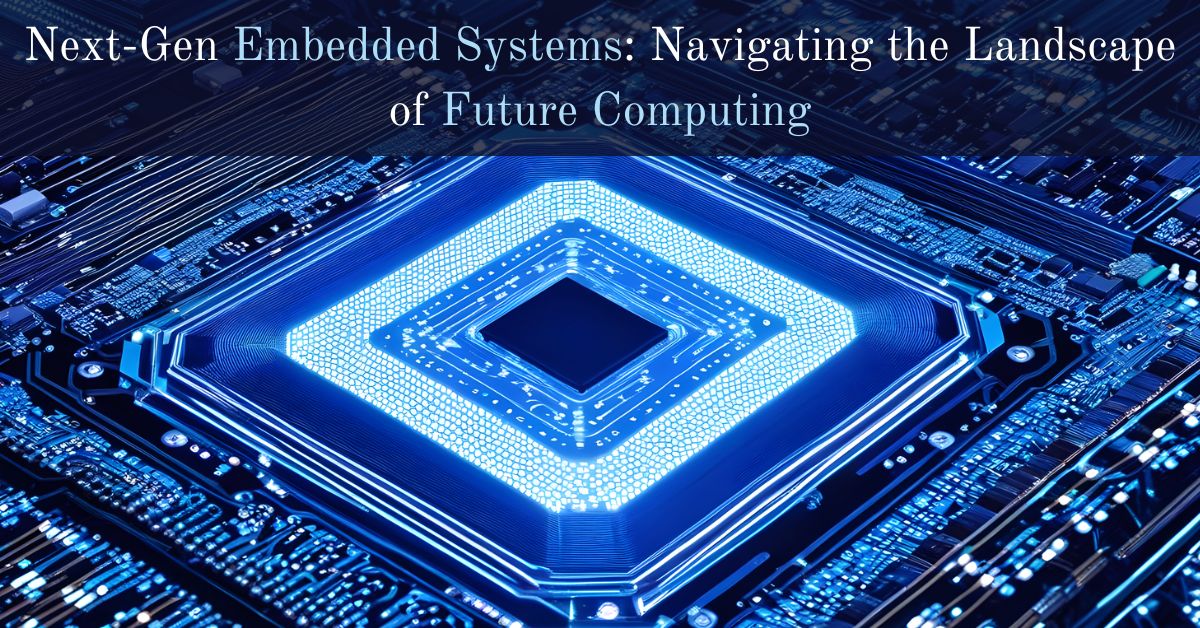
Next-Gen Embedded Systems: Navigating the Landscape of Future Computing
In the ever-evolving realm of technology, the constant drive for invention has led to the emergence of next-generation embedded systems, reshaping the landscape of future computing. These advanced systems, in collaboration with embedded software development services, go beyond traditional computing paradigms, introducing transformative capabilities that promise to redefine how we interact with technology and the world around us.
The Evolution of Embedded Systems:
Embedded systems have reached a long way from their origins as specialized computing units with fixed functions. Today, next-gen embedded systems are characterized by their adaptability, scalability, and integration across diverse domains. These systems are not limited to conventional devices; instead, they seamlessly embed themselves into the fabric of our daily lives, contributing to the burgeoning Internet of Things (IoT) ecosystem.
Versatility in Connectivity:
One of the key features of next-gen embedded systems, complemented by PCB design services, is their enhanced connectivity. These systems are designed to communicate seamlessly with each other, forming intricate networks that facilitate real-time data exchange. From smart homes & cities to industrial automation, the ability of embedded systems to connect and share information is a driving force behind the future of computing.
Edge Computing’s Ascendancy:
Next-gen embedded systems are at the forefront of the shift towards edge computing. By processing data closer to the source rather than relying solely on centralized cloud servers, these systems reduce latency, enhance efficiency, and open new possibilities for applications requiring instantaneous responses. This shift is particularly crucial in scenarios like autonomous vehicles, where split-second decision-making is imperative.
AI Integration for Intelligent Decision-Making:
Artificial Intelligence is a cornerstone of the future computing landscape, and next-gen embedded systems are incorporating AI at their core. Embedded AI enables these systems to analyze, learn, and make intelligent decisions autonomously, empowering them to adapt to changing environments and user behaviors. This integration is paving the way for smart devices that understand and cater to our needs with unprecedented precision.
Security Challenges and Innovations:
As embedded systems become more interconnected, addressing security challenges becomes paramount. Next-gen embedded systems are adopting robust security measures to safeguard against cyber threats & ensure the integrity of data. Innovations in secure hardware and encryption techniques are shaping a future where users can trust that their embedded devices are resilient against unauthorized access.
Energy Efficiency and Sustainability:
Efficiency is a core focus of next-gen embedded systems, with a heightened emphasis on energy conservation and conflict mineral compliance. These systems are conceived to operate with minimal power consumption, prolonging battery life in portable devices & lowering the environmental impact of large-scale deployments. Sustainability, encompassing both energy efficiency and conflict mineral compliance, is not just a feature but a guiding principle in the development of these advanced computing systems.
The Future Unveiled:
As we navigate the landscape of future computing, next-gen embedded systems, in collaboration with embedded Linux development services, stand as the driving force behind the technological revolution. Their versatility, connectivity, and integration of cutting-edge technologies like AI and edge computing position them as the catalysts for a smarter, more interconnected world. From healthcare & transportation to smart cities and beyond, the influence of these systems will continue to expand, shaping a future where computing seamlessly integrates into every facet of our lives.


